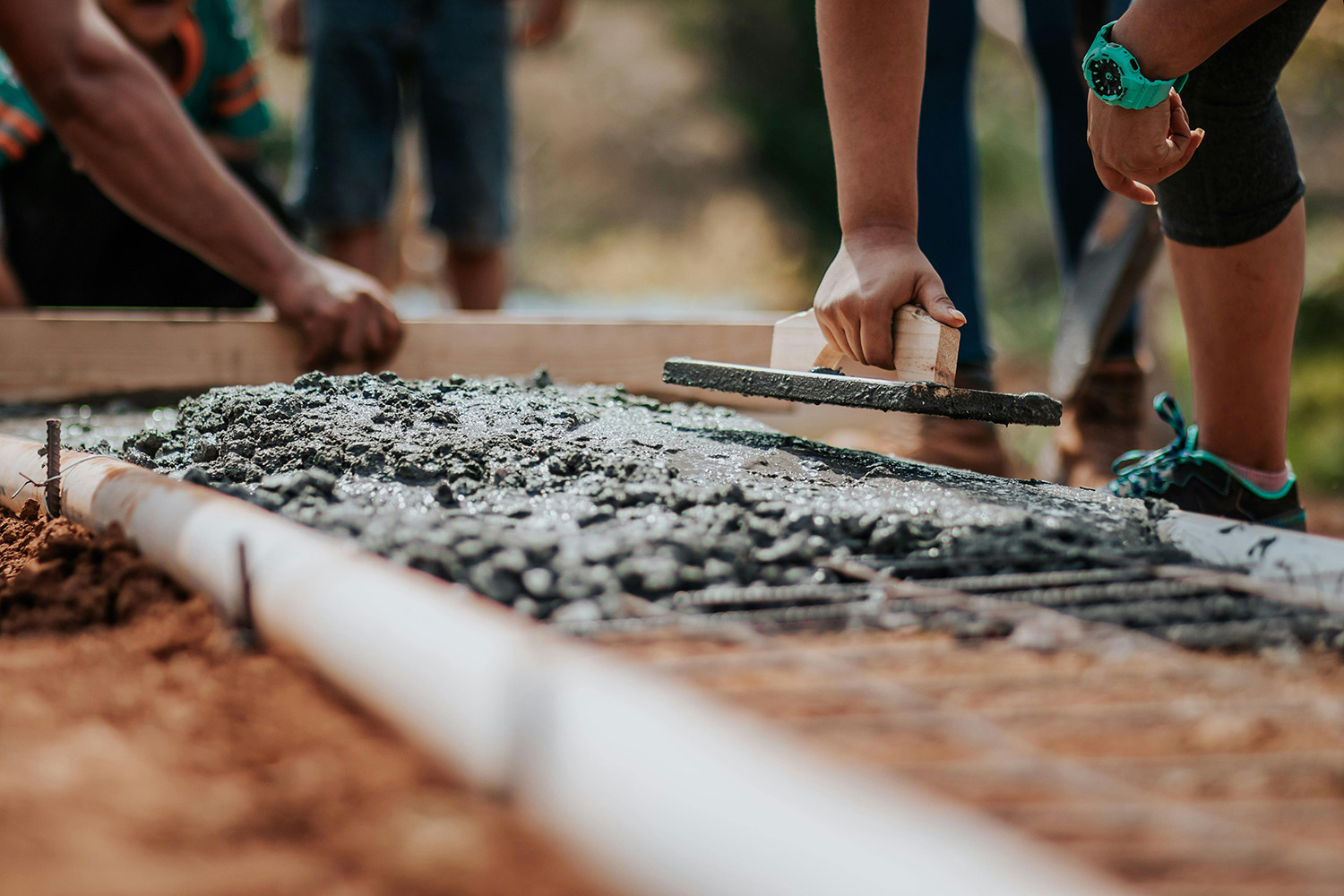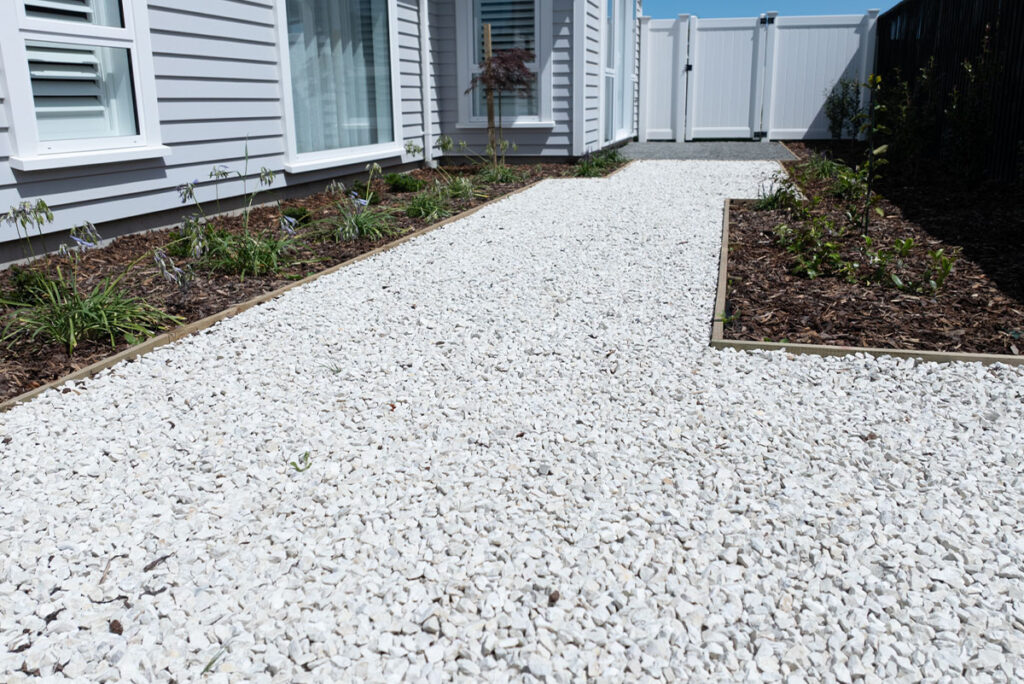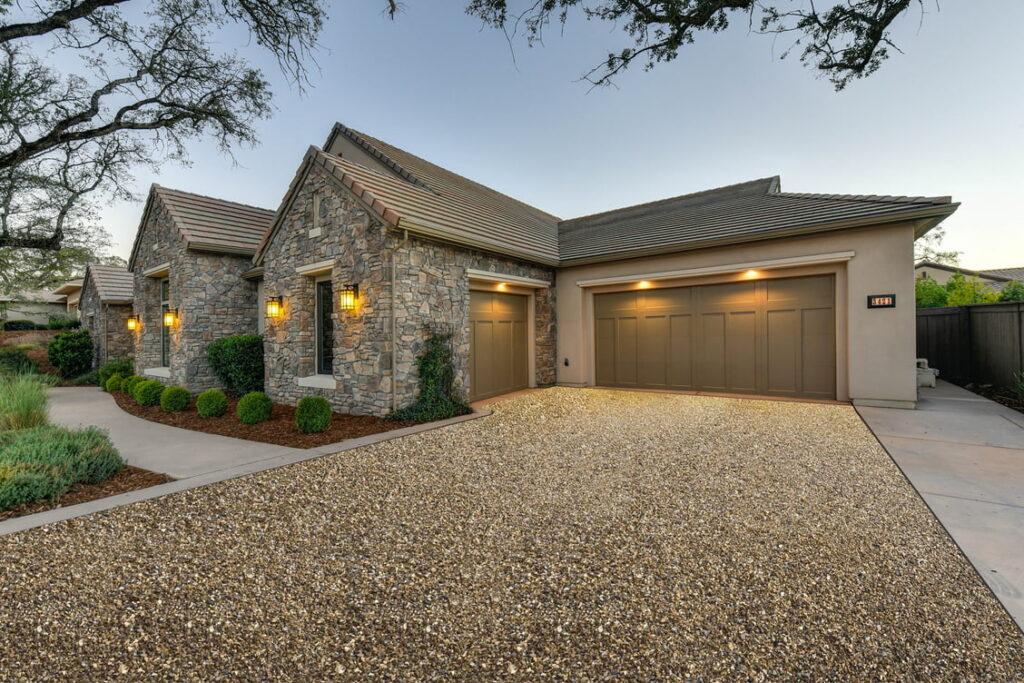Facebook
Twitter
LinkedIn
Pinterest
Reddit
WhatsApp
Traditional Paving vs. Natural Paving Permeable Pavers
In New Zealand, as our urban landscapes expand, we increasingly cover large portions of our outdoor spaces—driveways, patios, and other paved areas—with traditional materials like concrete and asphalt. These spaces, much like rooftops, collect significant amounts of rainwater. The larger the surface, the more water they collect, which, if unmanaged, can lead to issues in both the garden and stormwater systems. During heavy rainfall, this water can overflow, causing damage to plants, soil, and the infrastructure designed to handle runoff. The question becomes: how can we better manage all this water while being mindful of the environment? The solution lies in transitioning to more sustainable options, such as permeable paving.
Environmental impact of paving

- Traditional Paving (Concrete/Asphalt)
Traditional paving surfaces, like concrete and asphalt, are impermeable, meaning they do not allow water to pass through them. As a result, large quantities of water run off these surfaces and into storm drains, gutters or local streams. This increased stormwater runoff can overwhelm drainage systems, leading to localised flooding and causing soil and debris to accumulate and contaminate our waterways.
Additionally, because water cannot be absorbed into the soil, it can lead to soil erosion around the edges of paved areas. When rainwater flows quickly off these surfaces, it carries away valuable topsoil, which is crucial for plant health and garden sustainability. This erosion can also harm nearby landscapes and natural habitats.
Another environmental downside of concrete and asphalt is their contribution to the urban heat island effect. These materials absorb heat from the sun, increasing the surrounding temperature, which not only makes outdoor spaces uncomfortable but also leads to higher energy consumption as we seek cooling solutions for homes and businesses.
- Natural Paving Permeable Paving
In contrast, Natural Paving’s permeable pavers offer an eco-friendly alternative that allows water to filtrate through the paving surface, while still offering all the support benefits of a hard surface. This reduces surface runoff, enabling the water to be absorbed into the ground, where it can naturally recharge groundwater supplies. Permeable paving helps to manage stormwater effectively, preventing pollutants from entering our water systems and alleviating pressure on public drainage infrastructure.
By facilitating water absorption, permeable paving also plays a critical role in reducing soil erosion. Rainwater is held within the permeable pavers, with excess water directed toward stormwater systems beneath the surface. Instead of eroding topsoil or creating runoff that damages the surrounding landscape, permeable surfaces allow water to filter evenly into the soil, helping maintain the integrity of the landscape while preventing degradation.
Another advantage is that permeable paving helps regulate temperatures. These surfaces don’t absorb as much heat as traditional asphalt or concrete, helping to reduce the heat island effect and create cooler, more comfortable outdoor spaces. From a sustainability perspective, Natural Paving products are made from eco-friendly materials, making them a greener choice for homeowners who want to contribute to environmental well-being while also enhancing the beauty of their property.
Economic Benefits of Paving

- Lower Long-Term Costs
One of the most significant benefits of permeable paving is the long-term cost savings it offers. Since it allows water to infiltrate the surface, the need for extensive and expensive drainage infrastructure is minimised. Homeowners and developers can save on the installation and maintenance of stormwater management systems, which are necessary to deal with runoff from impermeable surfaces like asphalt or concrete.
Natural Paving is also easy to lay, so there is little need for contract labour. Depending on the size of your driveway, you may need to hire a digger to remove the surface layer, but all installation of aggregate, crusher dust, geotextile, pavers and stones can easily be done yourself.
Additionally, Natural Paving systems require less maintenance over time compared to traditional paving. Concrete and asphalt tend to crack, buckle, and degrade over time due to weather conditions, requiring frequent repairs. Permeable pavers, however, are designed to be more durable and flexible, adapting better to shifts in the ground. This results in fewer maintenance costs, as homeowners don’t need to worry about expensive repairs or replacements. Pebbles can simply be swept back into place, or it is easy to simply lift out and replace any damaged or newly designed areas to change or further enhance your landscape design.
Natural Paving products also tend to have a longer lifespan than traditional paving materials. Their ability to withstand the elements and resist cracking means they offer a better return on investment over the years. By choosing permeable pavers, homeowners can save on repair costs and enjoy a more durable, long-lasting surface.
- Traditional Paving Costs
While concrete and asphalt are often cheaper to install initially, they come with hidden long-term costs. These include the need for more robust drainage systems, regular repairs due to cracking or shifting, and the constant repairs and maintenance required to surrounding gardens after heavy rains. Over time, these costs can add up, making traditional paving a less economical choice in the long run compared to permeable solutions.
Aesthetic and Practical Advantages of Permeable Paving

When comparing traditional paving to Natural Paving permeable pavers, the differences in appearance are clear. Concrete and asphalt surfaces offer a more utilitarian, industrial look that, while functional, lacks visual appeal. These surfaces often crack and stain over time, detracting from the overall look of a home and reducing its curb appeal.
In contrast, Natural Paving permeable pavers offer a luxury, high-end aesthetic that complements the natural beauty of New Zealand landscapes. Natural Paving provides homeowners with the flexibility to create unique outdoor spaces that enhance the value and appeal of their property. The ability to customise these pavers ensures that each space feels personalised, making them a popular choice for those looking to add a touch of luxury to their home’s exterior.
Permeable paving is not just a practical solution for better water management—it is also a beautiful and sustainable way to elevate outdoor living spaces. By making the switch, homeowners can reduce environmental impact, save on long-term costs, and enjoy a more attractive and functional landscape.
